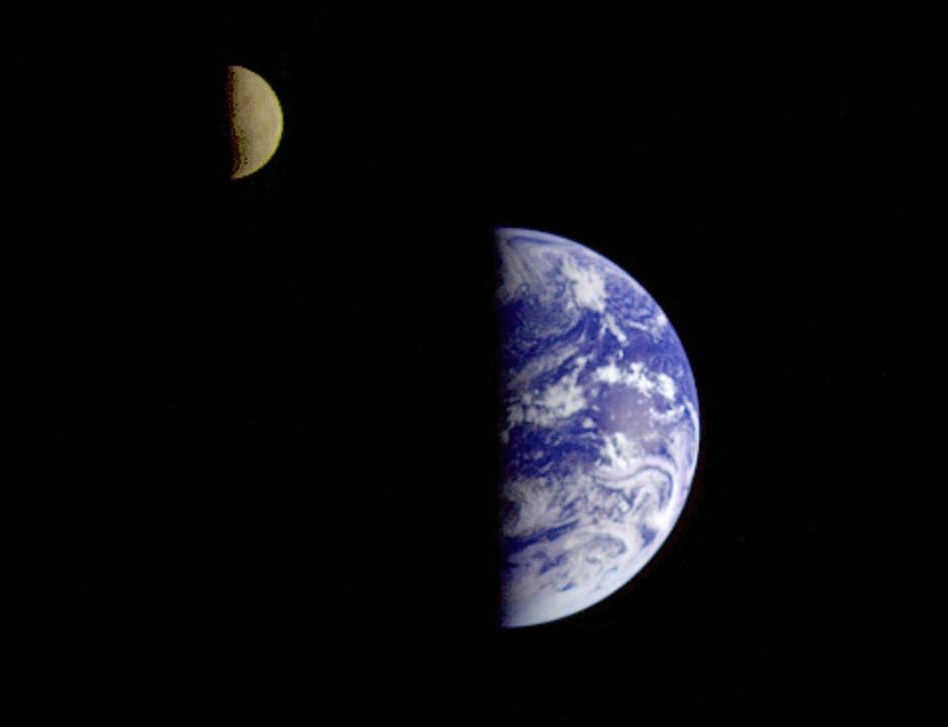

Preamble to the Statutes of the World Federalist Movement
World Federalism means having democratically accountable political institutions to deal with issues at the most appropriate level, according to the principle of subsidiarity. Thus local decisions should be taken at local level, national decisions at national level, and global decisions at global level. It is this latter, highest, level of government which is presently lacking, and which will have to be established if the world is to have a peaceful and prosperous twenty-first century.
Of course, achieving a world government in practice will be difficult, but I think there are several grounds for optimism. Indeed, the mere existence of the United Nations
is an implicit recognition on the part of national governments that a higher level of international government is at least desirable. Moreover, although presently hamstrung by an outmoded concept of state sovereignty, the UN does at least provide a framework from which a genuine world government might evolve.I think that world government can be seen as the logical end point of an evolution of political institutions which been in progress for several centuries now. The greatest success to-date for the federal principle is undoubtedly the US federal constitution, hammered out over the Summer of 1787 at Philadelphia. Ultimately, this federal constitution enabled a continental-sized area to come under the control of a single democratic government, which previously would have been considered impossible (and was in fact considered impossible by the anti-federalists in 1787). Needless-to-say, the success of the federal constitution has been responsible for everything subsequently achieved by the US as a superpower, including its space programme and the landing of man on the Moon in 1969. Indeed, I have argued elsewhere (see space interests/publications
) that higher level (i.e. global) political federation will probably be required before the human species will be able to afford much more ambitious space ventures.The next great historical experiment in federalism is taking place in Europe today. The US experience demonstrated that federalism can unite large geographical areas. It is now up to Europe to show that it can also unite many different nations, speaking many different languages and having a long history of conflict. For these reasons I am a supporter of the European Union
, although I agree that its institutions could be made more democratically accountable. I consider the successful introduction of the Euro as a single currency to have been one of the greatest geopolitical accomplishments of recent decades, and a major step towards European political and economic integration.However, European federalism should not be seen as an end in itself. Rather it should be seen as a political experiment which, if successful, would pave the way for other multi-national regional federations which, possibly acting through a reformed United Nations, could ultimately form the foundations of a genuine federal world government. One possible route through the UN might involve the creation of a UN Parliametary Assembly that would directly represent the World's citizens at a global level.
The European experiment is particularly important in this context
because if federalism can be shown to work in Europe, where the modern
nation-state was invented (in the aftermath of the collapse of the Roman
Empire), then there is every reason to believe that it can work anywhere. On the
other hand, if the European experiment fails, then there would be real grounds
for pessimisim concerning our ability to develop international government on any
significant scale, and therefore real grounds for pessimisim concerning the
future of the human race. The UK Brexit referendum result in June 2016 is of course a major setback to European federalism,
and it is greatly to be hoped that this doesn't herald an end to continued political integration of the remaining members. Only time will tell....
References
A comprehensive history of the whole idea of world government in Western political thought has been given by Derek Heater in World Citizenship and Government (Macmillan Press, 1996), and a scholarly review of world federalist activity in the 20th Century has been given by Joseph Baratta, The Politics of World Federation (two volumes, Praeger, 2004). Excellent reviews of recent thought on the subject can be found in Global Governance, Global Government: Institutional Visions for an Evolving World System edited by Luis Cabrera (State University of New York Press, 2011), and A World Parliament: Governance and Democracy in the 21st Century by Jo Leinen and Andreas Bummel (Democracy without Borders, Berlin, 2018). Further information regarding world federalism can be found on the websites of the World Federalist Movement and Citizens for Global Solutions. I also recommend anyone interested in the idea of world government to consult the numerous articles by leading scholars in the field posted on the website of the World Government Research Network.
I have summarised some of my own views in two short letters to Nature: Beyond the Nation-State (vol 358, p. 448, 1992) and World Government the Answer? (vol 371, p. 194, 1994). More recently, I have explored what I see as the benefits of world federalism in the context of future space exploration in a 2014 book chapter, and in a 2017 article for the World Government Research Network. I believe that the cosmic and evolutionary perspectives provided by astronomy, 'big history', and space exploration will be helpful in building a common worldview that could help lay the foundations for a federal global government; I have developed these ideas in a short essay on Can 'Big History' help lay the foundations for world government, and in a longer 2019 article published in the Journal of Big History.